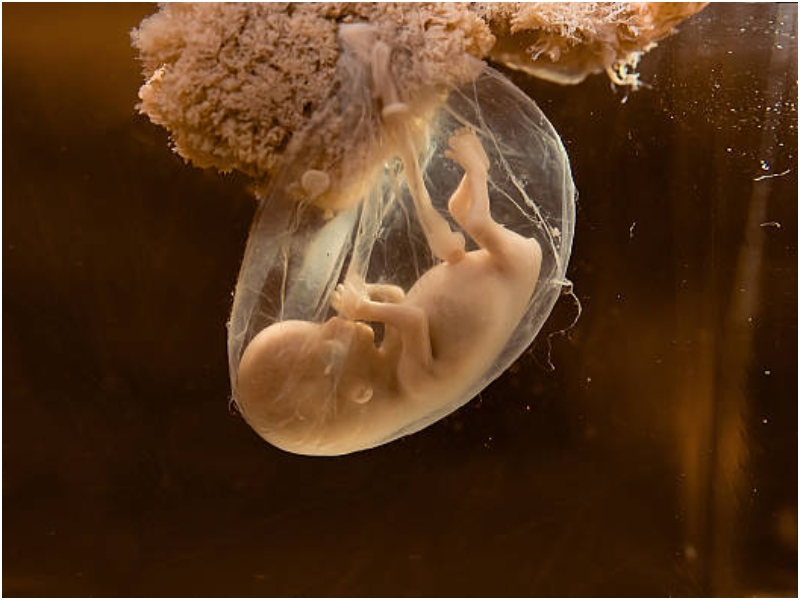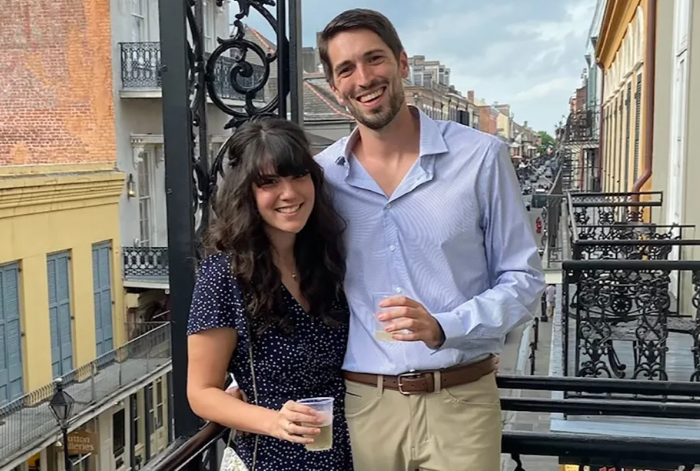Gabrielle Goidel’s dreams of starting a family have been shattered by a recent ruling from the Alabama Supreme Court, pushing her and her husband to flee the state in desperation.
Just days away from having her eggs retrieved for in vitro fertilization (IVF) at an Alabama fertility clinic, Gabrielle, already having endured three miscarriages and invested over $20,000 in the grueling IVF journey, found herself thrust into uncertainty and fear.
The court’s decision, deeming frozen embryos as human beings and opening the door for potential legal repercussions for their destruction, sent shockwaves through fertility clinics statewide. In response, clinics began halting IVF treatments, fearing prosecution under the new legal interpretation.

Alabama Fertility Specialists, Gabrielle’s provider, informed her on Thursday that while they were still willing to retrieve her eggs given her advanced stage in the IVF process, they could offer no assurances regarding their use, storage, or shipment.
The ruling has left Gabrielle and countless others in limbo, facing daunting questions about the fate of their embryos and the safety of pursuing IVF treatment in Alabama. Concerns about the legal implications of destroying embryos, the necessity of indefinitely freezing genetically nonviable embryos, and the potential risks for medical professionals performing IVF procedures loom large.
Dr. Andrew Harper, medical director for Huntsville Reproductive Medicine, has taken a defiant stance, refusing to halt IVF treatments despite the uncertain legal landscape.
“If some DA or attorney general wants to come after me, bring it on,” Harper said. “You better believe we’re not going down without a fight.”
His defiance reflects the frustration and determination of many providers and patients unwilling to surrender to the court’s ruling without a fight.
The lack of clarity from state authorities adds to the confusion and anxiety surrounding the situation. While providers grapple with ethical dilemmas and patients grapple with the emotional toll of uncertainty, there remains no concrete policy regarding the fate of frozen embryos, leaving families like Gabrielle’s in agonizing suspense.
For Gabrielle, the decision to let her non-genetically viable embryos pass represents a heartbreaking acceptance of reality. Despite viewing these embryos as symbols of hope and possibility, she recognizes the harsh truth of their fate. Her detachment is a coping mechanism born out of necessity, a means of preserving her sanity amidst the chaos and upheaval caused by the court’s ruling.
As families like Gabrielle’s navigate the complexities of infertility treatment in Alabama, the financial burdens and emotional toll only continue to mount. The prospect of indefinitely storing or shipping embryos out of state for disposal further compounds the already astronomical costs associated with IVF, adding an additional layer of stress to an already fraught journey.
In the face of legal uncertainty and personal anguish, Gabrielle’s story serves as a poignant reminder of the profound impact of reproductive rights rulings on individuals and families. As she and countless others grapple with the harsh realities of fertility treatment in Alabama, the need for clarity, compassion, and advocacy in reproductive healthcare has never been more urgent.

